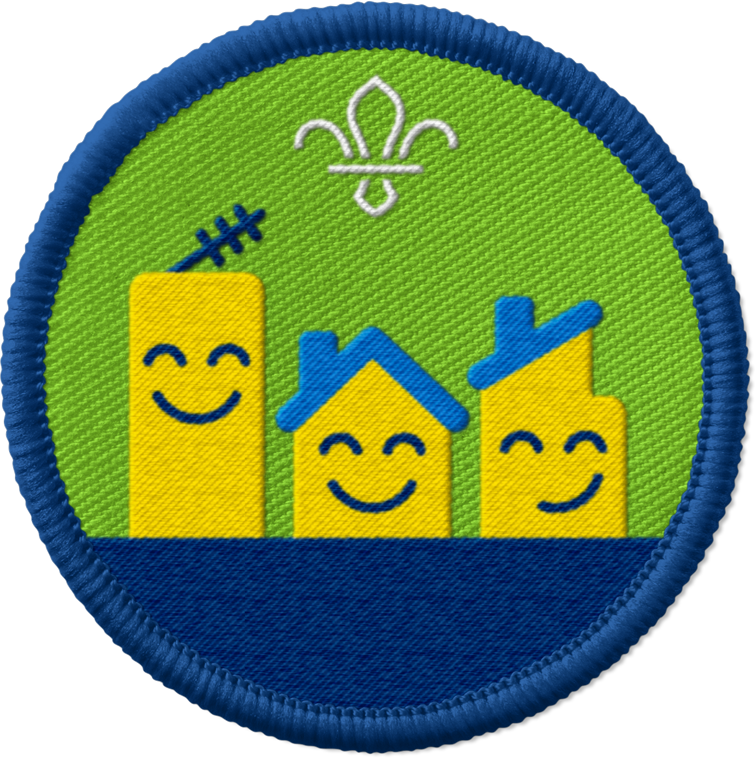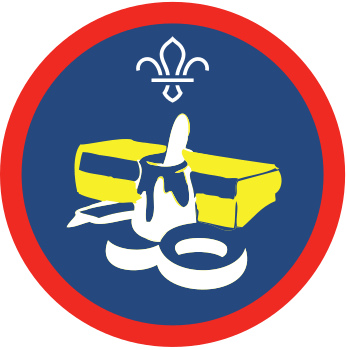
Create spoon puppet superheroes
You’ll need
- Scissors
- Paint
- Coloured pens or pencils
- Craft materials (for example, tissue paper, pipe cleaners, stickers)
- Double sided sticky tape
- Glue sticks
- Wool
- Something to protect surfaces (for example, newspaper or tablecloths)
- PVA glue
- Rulers
- Sticky tape
- String
- A4 card
- Tissue paper
- Pens or pencils
- Wooden spoons
- Paint brushes
- Felt tips
- Googly eyes
- Pipe cleaners
- Self-adhesive felt sheets
- Fabric
Before you begin
- Use the safety checklist to help you plan and risk assess your activity. Take a look at our guidance to help you carry out your risk assessment, including examples.
- Make sure all young people and adults involved in the activity know how to take part safely.
- Make sure you’ll have enough adult helpers. You may need some parents and carers to help if you’re short on helpers.
This activity could be run for several celebration days throughout the year, encouraging young people to recognise brilliant, inspirational people in their lives, in history, in fiction and around the world. Some ideas include:
Celebration months:
- February – LGBT+ History Month
- June – Pride
- October – Black History Month
Celebration days in 2023:
- 22 January – Lunar New Year
- 28 January to 5 February – National Storytelling Day
- 11 February – International Day of Women and Girls in science
- 1 March – St David’s Day
- 2 March - World Book Day
- 8 March - International Women’s Day
- 10 to 19 March – British Science Week
- 17 March – St Patrick’s Day
- 19 March - Mother’s Day
- 9 April - Easter
- 23 April - St George’s Day
- 19 June - Father’s Day
- 19 October - Diwali
- 31 October – Halloween
- 30 November – St Andrew’s Day
- 25 December - Christmas
Some ideas for hair include:
- String
- Self-adhesive felt sheets
- Cotton wool
- Pipe cleaners
Some ideas for a face include:
- Paint
- Permanent markers
- Stickers
- Googly eyes
- Art deco pens
- Self-adhesive felt sheets
- Fabric
- Felt tips
Some ideas for ears, crowns, glasses or other accessories include:
- Pom poms (great for noses!)
- Self-adhesive felt sheets
- Biodegradable glitter
- Fabric
- Stickers
- Buttons
- Ribbon
- Pipe cleaners
- Sequins
- Card
Some ideas for the arms include:
- Pipe cleaners
- Card
Planning and setting up this activity
- You may want to set up tables, chairs and craft materials before starting the session.
- You could have a selection of printouts about different inspiring people for young people to choose from and learn more about.
Running this activity
- Tell everyone that today they’re making a spoon puppet of someone who has inspired them or changed the world in some way.
- If you’re celebrating a special day or marking a calendar event, introduce it to everyone. You could tell people a little about it, what it is, who is celebrated and why or what they’ve done.
- Go round in a circle and ask people to recognise a brilliant, inspirational person they want to make a spoon puppet of. It could be a person in their lives, in history, in fiction, a celebrity and around the world. It could be a local person, too.
- If people don’t want to say who they’ve chosen, that’s OK too.
- If you’ve a selection of printouts about different inspiring people, let young people have a chance to look through them.
- Now, ask everyone to take a spoon and draw their design onto it in pencil. You may want to give out paper too, so people can practice drawing their design.
- First, paint the handle of the wooden spoon and leave to dry. Once the paint is completely dry, write the name of the person down the handle of the spoon, using an art deco pen, permanent marker or in paint.
- Everyone should then use the craft materials to create their person. They might want to give the person different features and use glue to attach the items.
- Before using glue, it’s better to do any painting first, if you’re going to, and waiting for it to dry. This means the glue and paint shouldn’t mix.
- If people want to make an outfit, they could cut the outfit’s shape out of a sheet of felt, fabric, card, or another material. This should be stuck on the front of the spoon. The outfit can then be re-cut out of the same fabric, and you can attach it to the back of the handle using double sided tape to a full outfit. You can also glue or stick the back of the outfit to the front of the outfit, so it wraps around the spoon.
- Encourage and allow people to be as creative as possible in their designs.
- Once everyone’s finished, leave the spoon puppets to dry. Once dry, you could go round in a circle and ask everyone to show who their spoon is, why they chose that person, what they did and how they inspire them.
Reflection
This activity was all about finding out about people who inspire us. Who did you create? Why did you choose that person? What did they do and how do they inspire you?
If you could say one thing to that person or meet them, what would you say? How have they impacted your life and why do you think they need to be celebrated?
We made puppets to help bring our inspiring people to life. What did you do to make your spoon? How did you think creatively to turn the spoon into the puppet?
Did you run into any difficulties and how did you resolve them? What do you think of your puppet? What did you like and is there anything you’d change or amend?
Safety
All activities must be safely managed. You must complete a thorough risk assessment and take appropriate steps to reduce risk. Use the safety checklist to help you plan and risk assess your activity. Always get approval for the activity, and have suitable supervision and an InTouch process.
- Scissors
Supervise young people appropriately when they’re using scissors. Store all sharp objects securely, out of the reach of young people.
- Glue and solvents
Always supervise young people appropriately when they’re using glue and solvent products. Make sure there’s plenty of ventilation. Be aware of any medical conditions that could be affected by glue or solvent use and make adjustments as needed.
- To make this activity easier, you could use smaller, cutlery sized wooden spoons, rather than kitchen/utensil sized wooden spoons.
- If anyone needs help or struggles with fine motor skills, give them the opportunity to work in pairs, with a young leader or an adult volunteer. Alternatively, swap out the items for something easier to handle.
- People who struggle with making choices could find all the options a bit overwhelming, so they might need extra support or to work with a young leader/volunteer to be able to create their artwork.
- If anyone needs support in using craft items, allow them to work with someone else who can help them.
All Scout activities should be inclusive and accessible.
If you enjoyed this activity, you could put on a show with your puppet spoons for each other, another group or for parents and carers.
Young people could be as creative as possible in their designs. They can suggest who they’d like to design.



